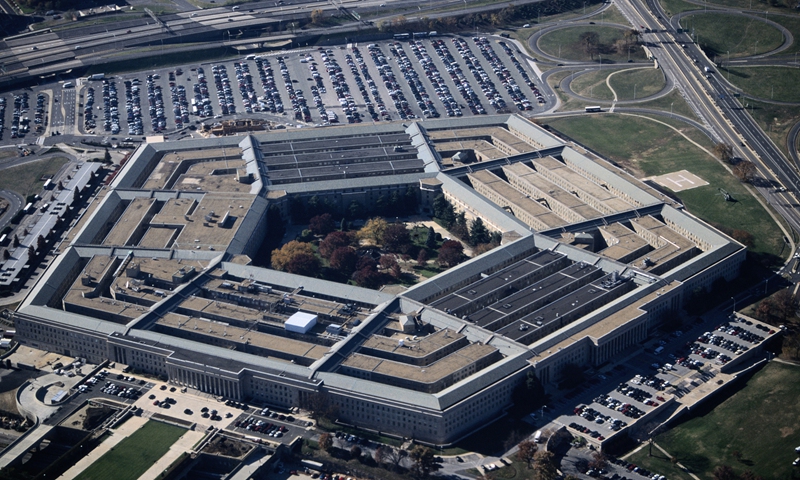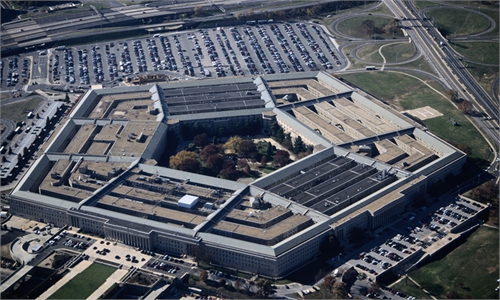
Pentagon File photo:VCG
US Defense Secretary Mark Esper pledged Tuesday to help maintain Israel's military superiority in the Middle East, amid its concerns over a possible US sale of F-35 fighters to the United Arab Emirates (UAE)."A cornerstone of our defense relationship is preserving Israel's qualitative military edge in the region," Esper said as he welcomed Israeli Defense Minister Benny Gantz to the Pentagon.
"The United States is committed to that, and the Department of Defense is committed to that imperative. We will continue to support the longstanding US policy to maintain Israel's security," said Esper in a statement.
The question of whether the US will sell the advanced fighters to the UAE cast a cloud over the White House ceremony last week for the diplomatic normalization agreements between Israel and the UAE and Israel and Bahrain.
US President Donald Trump mentioned at the time that he would have "no problem" selling F-35 warplanes to the UAE, despite objections from the Jewish state.
Israel has long opposed the sale of F-35s to any US allies in the region including Jordan and Egypt, both of whom already recognize Israel.
Such a sale would erode Israel's military advantage over its neighbors.
Since the 1960s the US has approached the issue on the principle that Israel should maintain a "qualitative military edge (QME)," and the concept has been formalized in legislation from Congress.
But the UAE, which sits astride the strategic Strait of Hormuz across from Iran, which is seen by Israel and the US as a major threat, has sought the advanced fighters for several years.
At the Pentagon, Gantz stressed the importance of the US-Israel partnership in the "unstable" Middle East region, and said the relationship goes beyond "QME."
"As I always said, we have no other United States, nor do you have any other Israel," he said.
"We will continue those relations into the future. And we see those relations as a privilege, but also as a necessity, a continued necessity," Gantz said in a statement.
AFP


